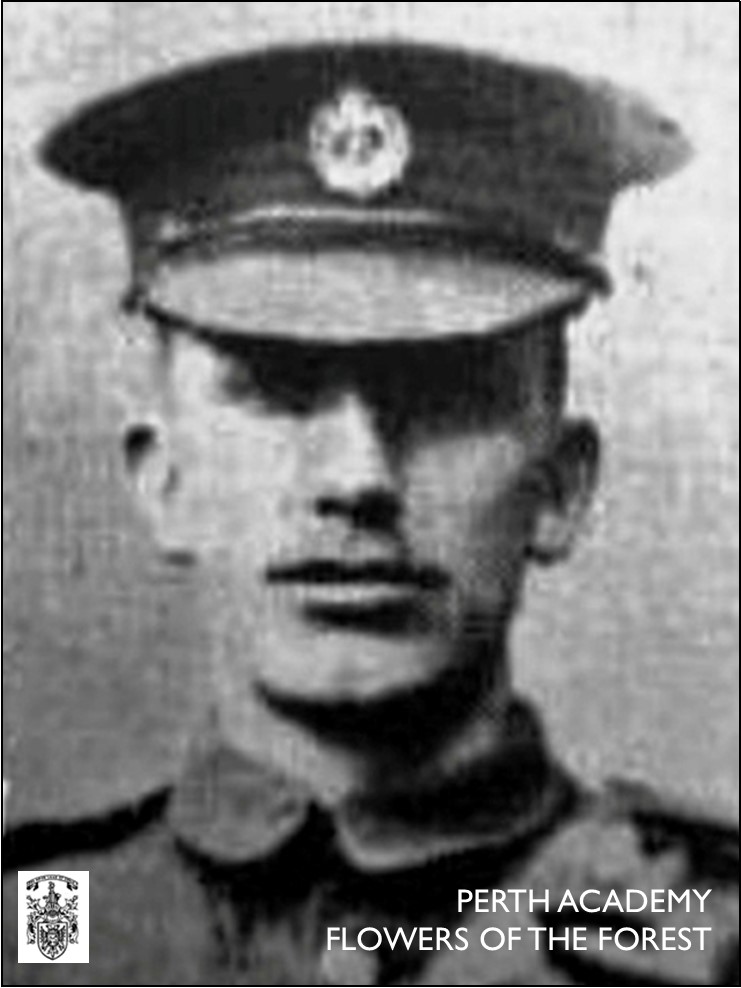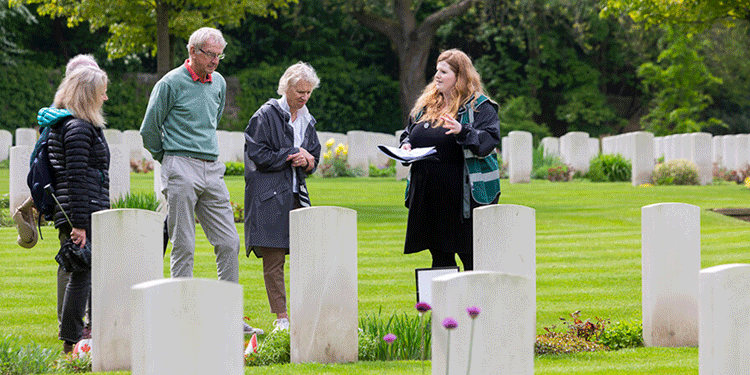
Daniel Irvine was born on 8th February 1883 in the Officers’ Quarters at Perth General Prison where his father was employed as a Prison Warder. He was the sixth child, and second son of Duncan Irvine and Euphemia Malloch. Daniel was one of nine children. His siblings were: Margaret (b. 1876); Janet (b. 1877); James (b. 1879); Euphemia (b. 1880); Ann (b. 1882); William Alexander (b. 1885); Isabella (b. 1887); and Duncan John (b. 1889).
Daniel was educated at Craigie Public School and Perth Academy. At the age of 14, he commenced his employment with the General Post Office, first in Perth and later in Blairgowrie. Initially he worked as a Telegraph Messenger. He progressed to the position of Postman at the age of 17 and when he was 21, upon passing a competitive examination, he became a Sorting Clerk/Telegraphist.
Daniel joined the Black Watch Territorials in 1910 and by the time war broke out in 1914 he had completed four years training. The Territorial Force was formed in 1908 and they were assigned to the coastal defence of Scotland.
Daniel transferred to the Royal Engineers on 20th November 1914, enlisting at Rutherglen, Lanarkshire and was attached to the 52nd Lowland Division, Signal Company.
On 5th April 1915, the 52nd Lowland Division was notified that it would be posted overseas and on 7th May 1915 their destination was confirmed as Gallipoli. The first units landed in Gallipoli (Cape Helles) on 6th June 1915. Daniel Irvine first entered a “theatre of war” on 15th September 1915.
Whilst serving in Gallipoli, Daniel contracted dysentery, a bowel disease caused by contaminated water. Dysentery was prevalent during war and particularly affected men in the trenches as there was no proper sanitation.
Daniel Irvine died on 3rd November 1915 in No. 15 General Hospital, Alexandria, Egypt. He was 32 years of age.
In a letter, Daniel’s Commanding Officer wrote “...I would like to say how sorry I am personally and I am sure all those who knew him are, to hear the sad news. He was with the second-line unit of this company when I was in charge of it from November 1914 until May 1915. I knew him then and came to value him highly. He was always anxious to get away with the first-line company, and I, on one or two occasions, refused to let him go as he was doing such useful work in the second-line company.”
Daniel Irvine was unmarried and he made a will which was dated 25th July 1915. His address at that time was Birch Cottage, Rattray, Blairgowrie, and his mother, Euphemia Irvine (Malloch), wife of Duncan Irvine was named executrix.
Daniel Irvine is also commemorated on the Blairgowrie & Rattray War Memorial and the Blairgowrie United Free Church War Memorial.

SCONE REMEMBERS MEMORIAL WALK
The Scone Remembers project has created a unique WW1 memorial sound walk. You can walk around the village and listen to the stories of 72 men from the historic Parish of Scone, who fell in the Great War. Each plaque has a photograph, military details, if known, and a QR code. Visitors can scan the QR code using their phones and hear the stories of the men’s lives. Plaques have been installed on lamp posts and stakes near their homes, place of work or the school the men attended. Due to the vast agricultural area involved, some of the plaques have been placed around Scone Park and Scone Palace Estate.
Free route maps/ information leaflets of the route can be found at: The Spar Shop, Abbey Road Scone; The Sweetie Shop Perth Road Scone; Perth and Scone libraries; Perth tourist office.
The stories of the casualties who attended Perth Academy are narrated by pupils of the school who were members of the school’s Great War remembrance project “Flowers of the Forest” and they are available to listen to via the link on the Scone Remembers website.





